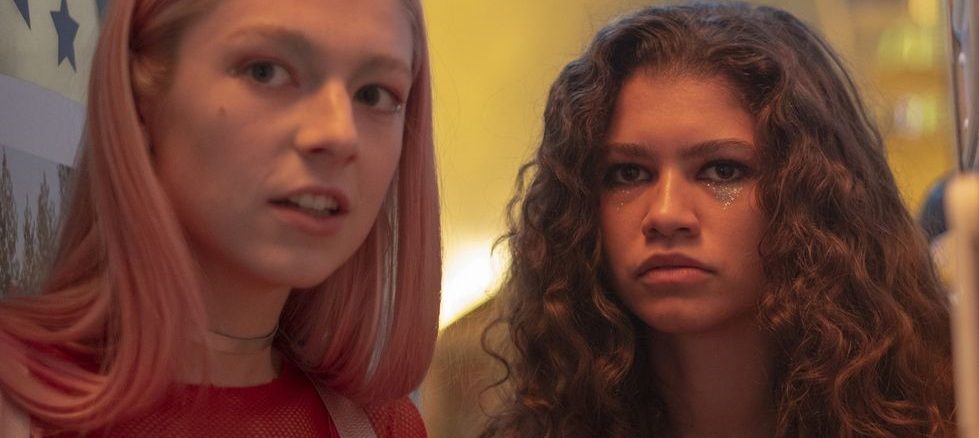
Trigger Warning: Reference to addiction and sexual assault.
When you think back on your formative years, do you think editorial eyewear, cinematic realism and couture school outfits? Yeah, me neither. However, this does not mean the entirety of Euphoria should be up for quick dismissal – through the lens of emotional realism, Euphoria acutely narrates social issues. Such as addiction, sexual violence, suicide ideation and sex work.
Theorised by cult fans, the show follows the timeline of Rue Bennett’s life; in-depth analysis of her addiction, relationships and eventual demise. Through Rue’s narration, we learn about the lives of Jules, Kat, Maddie, Nate, Lexi, Maddie and Fezco; their relation to Rue, personal troubles and Rue’s thoughts on their character.
Throughout Euphoria, Rue’s portrayal is heavy, angsty and bitter. With depictions of drug use, overdosing, trauma responding and abusive behaviour. This is only one protagonist’s backstory, yet it provides a myriad of opportunities to trigger viewers to a high degree.
Euphoria is a perplexing show, as it is not signified by it’s traumatic content, but rather by its signature styling and cinematography – its ‘Euphoria aesthetic’. The creation of this aesthetic is not inherently problematic, however Euphoria analyses palpable social issues through a surrealist lens, conjuring a potentially dangerous paradox.
Filmmaker for the series Sam Levinson notes this:
“It (realism) holds zero interest to me, in so much as we’re talking about realism in a cinematic sense, in terms of the aesthetics and the look of the world. I know we get that criticism quite a bit. And yeah, it’s not real. Teenagers don’t do extravagant makeup like this, and so on. But at the same time, there’s people constantly saying how real the show feels, which creates an interesting paradox.”
With a paradox such as this, there is a lingering possibility of aestheticization; addiction, underage sex work, sexual assault, etc. Due to the surreal lens of Euphoria, viewers fictionalise the concepts presented; developing a Euphoria lexicon, making visual and thematic associations; glitter and high; lighting and toxic. This word association can even be seen through the series’ cult social media following.
While Euphoria is a complex life trauma narrative, it is primarily a representation of that life trauma’s emotional reality. Poignantly beautiful, it decentralises the aforementioned social issues. This allows for a false sense of security for triggerable viewers; sensitive content is laced throughout aesthetic scenes or offset by the wardrobe, make up, etc.
An example of this, is (Season 1, Episode 6) Cassie kissing Daniel, him pushing her head down to have sex and when she refuses he begins to berate her.
“Do you think I’m here because I’m interested in you? In what you say or what you think about things as if you’re so fucking interesting? Fuck, are you dumb. You came on to me. Remember? And ever since then, ye show up, ye lead me on and then you whine about your fucking boyfriend. But every time you start talking I think to myself who the fuck does this girl think she is? You are so fucking boring. Hey, I’m gonna be honest with you because no one else will – any guy who says he’s interested in you beyond just fucking you, is full of shit.”
Despite this weighted scene, it is decentralised by the intense visuals; the teen party aesthetic and curated Halloween costumes.
Euphoria is definitely a tale of two cities; portraying sensitive issues through an emotive rather than objective lens may be perceived as empathetic and wise. In a way it is. However, if you struggle with any of the issues depicted, watching aestheticized and emotive depictions of trauma is potentially harmful.
